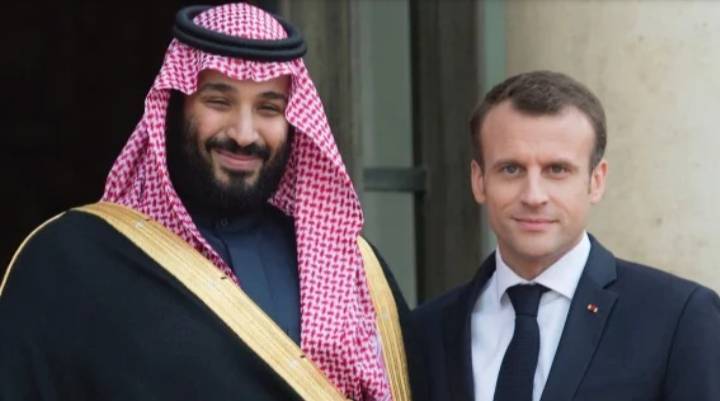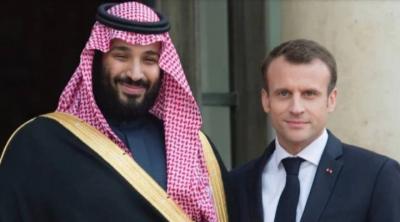As the investigation into the Beirut port explosion is either shelved or facing renewed obstruction, the issuance of the preliminary or accusatory decision by Judge Tarek Bitar remains linked to potential developments, whether internal or external. Therefore, the current focus is on the scheduled quadripartite meeting in Paris, which has been set to take place between February 7 and 10. Multiple sessions are expected among the participating delegations, along with bilateral meetings, indicating that the discussions will extend over one or two days. The goal of the meeting is to establish a clear political action plan for the Lebanese trajectory.
#### Shared Political Vision
Prior to the meeting, multiple communications took place between the United States, France, Saudi Arabia, and Qatar to coordinate and achieve a shared vision. It has been decided that U.S. Assistant Secretary of State for Near Eastern Affairs Barbara Leaf, French Élysée advisor Patrick Durel, Saudi Royal Court advisor Nizar Alalula, who is responsible for the Lebanese dossier, and Qatari Assistant Foreign Minister Mohammed bin Abdulaziz Al-Khalifi will participate in the meeting. The gathering aims to draft a common political vision for a mechanism to resolve the Lebanese crisis.
This formula will be achieved through the consensus of these powers, aiming to establish a clear program and course of action for Lebanese officials to adopt to settle the issues at hand, elect a president, and form a government. These four countries understand that any progress and resolution requires communication with Iran, which is expected to occur after the meeting. There is a prevailing view that Iran and Hezbollah seek a resolution to stabilize Lebanon and halt its downhill trajectory.
#### Key Ideas and Core Points
Among the ideas being discussed to reach the desired formula are key points that emerged during Saudi Crown Prince Mohammed bin Salman’s meeting with French President Emmanuel Macron during the latter’s visit to Riyadh. These points emphasized adherence to international resolutions, the Taif Agreement, the election of a president, and the formation of a government that enjoys international confidence while implementing economic reforms.
These same points were also included in the Kuwaiti initiative handed to Lebanon and referenced in the tripartite statement issued following a meeting of representatives from the U.S., France, and Saudi Arabia in New York last September, on the sidelines of the United Nations General Assembly. These three events form the primary framework for what will emerge from this conference. The ongoing discussions aim to develop a common vision regarding the qualifications for the future president, avoiding specific names, as well as the qualifications for the prime minister and the government as a whole, leaving the details concerning names and the political process itself to the Lebanese parties, alongside an economic mechanism to achieve the necessary reforms.
#### No Winners or Losers
According to informed sources, the political document that will be ratified or agreed upon will also include certain stipulations regarding the acceptable characteristics for the positions of president and prime minister. This will be based on avoiding provocation towards any Lebanese or regional party while protecting the interests of the Lebanese people and the nations concerned about Lebanon. Additionally, it aims not to favor one side over another, requiring the election of a president with consensus and moderate characteristics so that no other Lebanese factions feel that his election would lead to their isolation or political revenge.
Furthermore, a crucial point regarding the premiership is that the chosen prime minister must align with the president in such a way that he enjoys confidence from both domestic and foreign entities, presenting a change-oriented image, and refraining from any "clientelism," a term favored by the Americans at this stage.
This meeting is expected to be pivotal, and its outcomes will be handed over to the Lebanese to engage with and approach seriously. The goal is also to involve regional powers that can contribute to this settlement, including Iran and Egypt.
There remains an unresolved issue regarding the potential establishment of a timeline among the participating countries, accompanied by threats of sanctions unless tangible progress occurs in the political process. In clearer terms - according to informed sources - discussions are underway regarding a possible timeline of three to six months to achieve progress in the political process for electing a president. Failing this, some countries may resort to imposing sanctions on those obstructing progress.
Practically, this will serve as a core agenda item for countries interested in Lebanon, aimed at assisting it out of its crisis. Should there be responsiveness to this, the path to settlement will proceed. However, if there is no cooperation and further complications and escalation occur, the Lebanese trajectory will descend into deeper collapse and deterioration, leading Lebanon into a prolonged period of vacuum with all its negative repercussions across various sectors.




